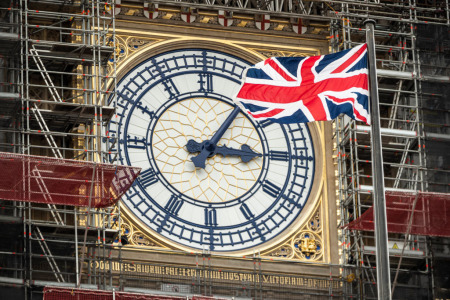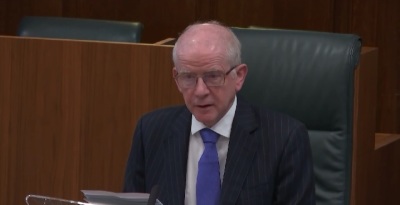UK Supreme Court allows Northern Ireland to ban prayer, protests outside abortion clinics

The United Kingdom Supreme Court has ruled that Northern Ireland can ban pro-life demonstrations and prayers outside of abortion clinics, arguing that it is not a violation of the freedom of assembly.
Northern Ireland passed an "Abortion Safe Access" bill in March, which creates buffer zones around abortion clinics that would prohibit any effort to deter a woman from getting an abortion.
A concern was raised that the legislation's clause 5(2)(a), which puts a total ban on pro-life actions within the buffer zone, violated the European Convention on Human Rights.

In a ruling released Wednesday, U.K. Supreme Court President Robert John Reed wrote that the court unanimously concluded that the bill does not violate the human rights of protesters.
While acknowledging the legislation does restrict pro-life demonstrators' rights, Reed argued that "this restriction can be justified" as it "pursues a legitimate aim."
"It seeks to ensure that women have access to advice and treatment related to the lawful termination of a pregnancy under conditions which respect their privacy and dignity and are not driven instead to less safe alternatives," said Reed.
"It is also designed to enable staff who work at hospitals and clinics where terminations are available to attend their place of work without being intimidated, harassed, or abused."
Reed described the buffer zone law as "rational and necessary," claiming that clause 5(2)(a) "strikes a fair balance between competing rights," noting that pro-life protesters "are free to protest anywhere else they please."
The office of the Attorney General of Northern Ireland, which had asked the U.K. Supreme Court to rule on the bill, released a statement saying it "welcomes the decision of the Supreme Court" and that the "Secretary of State may now submit the Bill for Royal Assent."
Liam Gibson of the Society for the Protection of Unborn Children denounced the ruling, saying in a statement that it was "not only a bad decision" but also one that sets "a precedent which has the potential to endanger everyone's right to freedom of speech and the right to engage in peaceful protest."
"The abortion industry loathes the public expression of the pro-life message and our efforts to reach out to women considering abortion. The systematic campaign to restrict pro-life freedom of speech is already well advanced, but this will make the censorship worse," stated Gibson.
Gibson also claimed that the ruling "will almost certainly have implications far beyond Northern Ireland," referencing other members of the United Kingdom considering similar buffer zone laws.
"Abortion advocates in the Scottish Parliament are also planning to introduce a Bill to criminalize pro-life vigils. Scotland's Lord Advocate, who intervened in this case, claimed that silent prayer was more psychologically damaging than noisy protests," Gibson continued.
"Without any evidence to back up such claims, the Supreme Court has agreed to criminalize silent prayer in the vicinity of abortion facilities."
In 2021, the U.S. Supreme Court rejected a request from a pro-life group to hear a challenge to a Pennsylvania city law that created a "buffer zone" around abortion clinic entrances.
"The city of Pittsburgh, like many jurisdictions, has created 'buffer zones' around abortion clinics. These zones often impose serious limits on free speech. Many even prohibit certain one-on-one conversations," wrote Justice Clarence Thomas, one of the court's most conservative justices.
"In 2000, we upheld one such law, determining that it survived under the First Amendment because it satisfied intermediate scrutiny. Hill v. Colorado, 530 U. S. 703 (2000).”





















